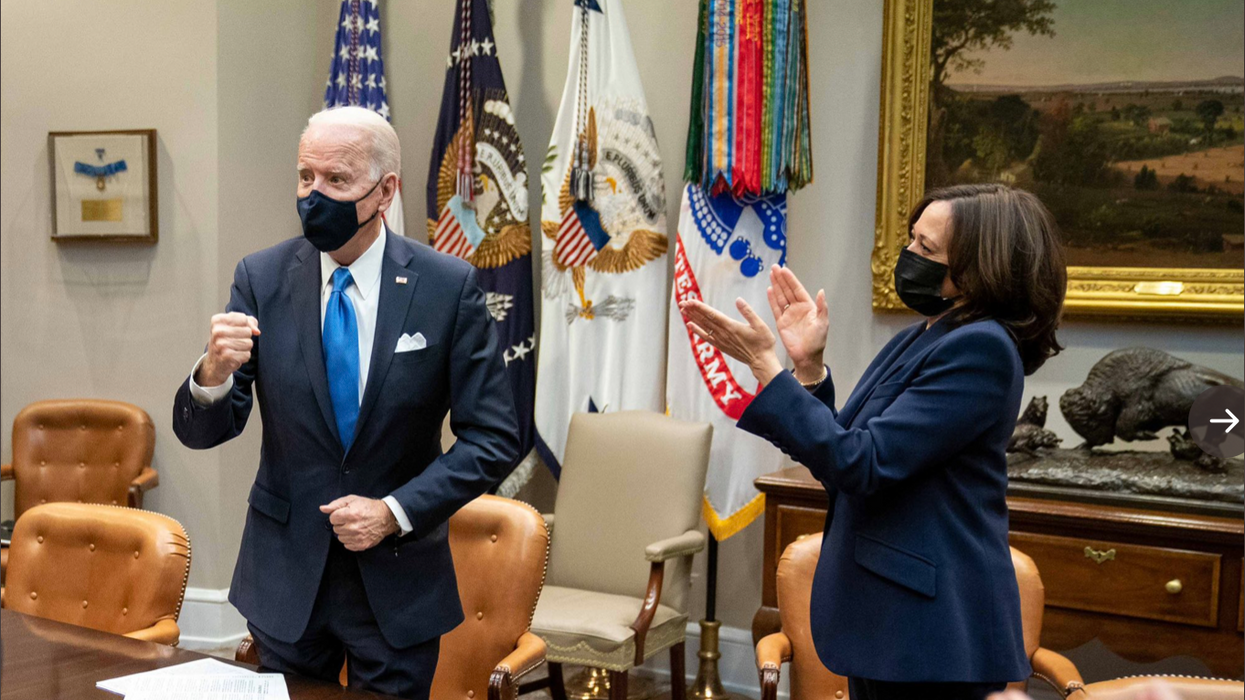Blue States That Finance Government Need Less Federal Help
"Move it back to the states," Donald Trump says about education, about FEMA and, as will probably happen, about Medicaid. What that would mean to Americans depends on what state they live in. As the federal government moves forward on this, it's a good bet that high-income states can handle the changes better than low-income ones.
Yes, it's true: Taxpayers in high-income states, largely blue ones, have been subsidizing residents of less wealthy red states.
A few years ago, there was an interesting feud between Joe Manchin, senator from West Virginia, and Mikie Sherrill, who represents a well-heeled congressional district in New Jersey. Funds for a federal child care subsidy were to be cut, and Manchin wanted the plan rejiggered to send a bigger chunk to the many low-income families of West Virginia. That would have meant less help for suburban parents in New Jersey.
Sherrill responded: "New Jersey already pays more than $10 billion in taxes than we receive in federal spending, and I will not let another federal program pay less to New Jersey taxpayers than it does to all other Americans."
According to Trump's vision of New Federalism, services provided by the federal government would be better handled by states. But the bills for these services would also largely go to the states. Obviously, states with high incomes and high taxes are better equipped to replace Washington dollars.
Florida may have attracted a lot of rich people seeking low taxes, but if the Federal Emergency Management Agency stopped showering money for hurricane relief every time a big blow tears up the coastline — forcing Floridians to bear more of the cost — well, good luck with that.
FEMA's core principle for disaster relief has been "locally executed, state managed and federally supported." Home insurance costs have already skyrocketed in Florida. Add to that the economic fallout of making the people living there pay more for building back?
Public schools are mostly funded by state and local taxpayers. The Department of Education does give money to schools with high percentages of low-income students, many in rural areas, and pays for special education. Over 23% of Mississippi's school district revenue comes from federal funding. By contrast, the feds account for only about 7% of New York state's.
Meanwhile, look at outcomes. The top state for test scores is Massachusetts, followed by New Jersey, Connecticut, New Hampshire and New York. These states would probably do OK without a Department of Education.
The House budget resolution targets cuts to Medicaid of up to $880 billion or more over 10 years. Medicaid is jointly financed by states and the federal government but administered by the states. If a state wants to make up for lost Medicaid funds, it can raise taxes. Or it could cover fewer people, cut benefits or pay doctors less.
Despite a much-publicized movement of rich people from high-tax places like New York and California to lower-tax Florida and Texas, the big money has largely remained in the urban centers where it was originally made.
"The Ultra-Rich are Flourishing and Sticking Around in California," Bloomberg News reports. Despite mesospheric housing prices, some corporate departures and high taxes, Bloomberg writes, "it remains one of the most popular places for global wealth."
And the state is run by Democrats. Texas may be a red state, but its economic engines are the blue cities of Austin, Dallas and Houston.
Trump's 2017 tax cuts overwhelmingly went to the upper incomes. Extending them now would do more of the same. Where do those upper incomes live? (See above.)
I may be the thousandth pundit to note that Trump-o-nomics hurts working people most, that is, his voters. What can you say except that elections have consequences.
Reprinted with permission from Creators.












